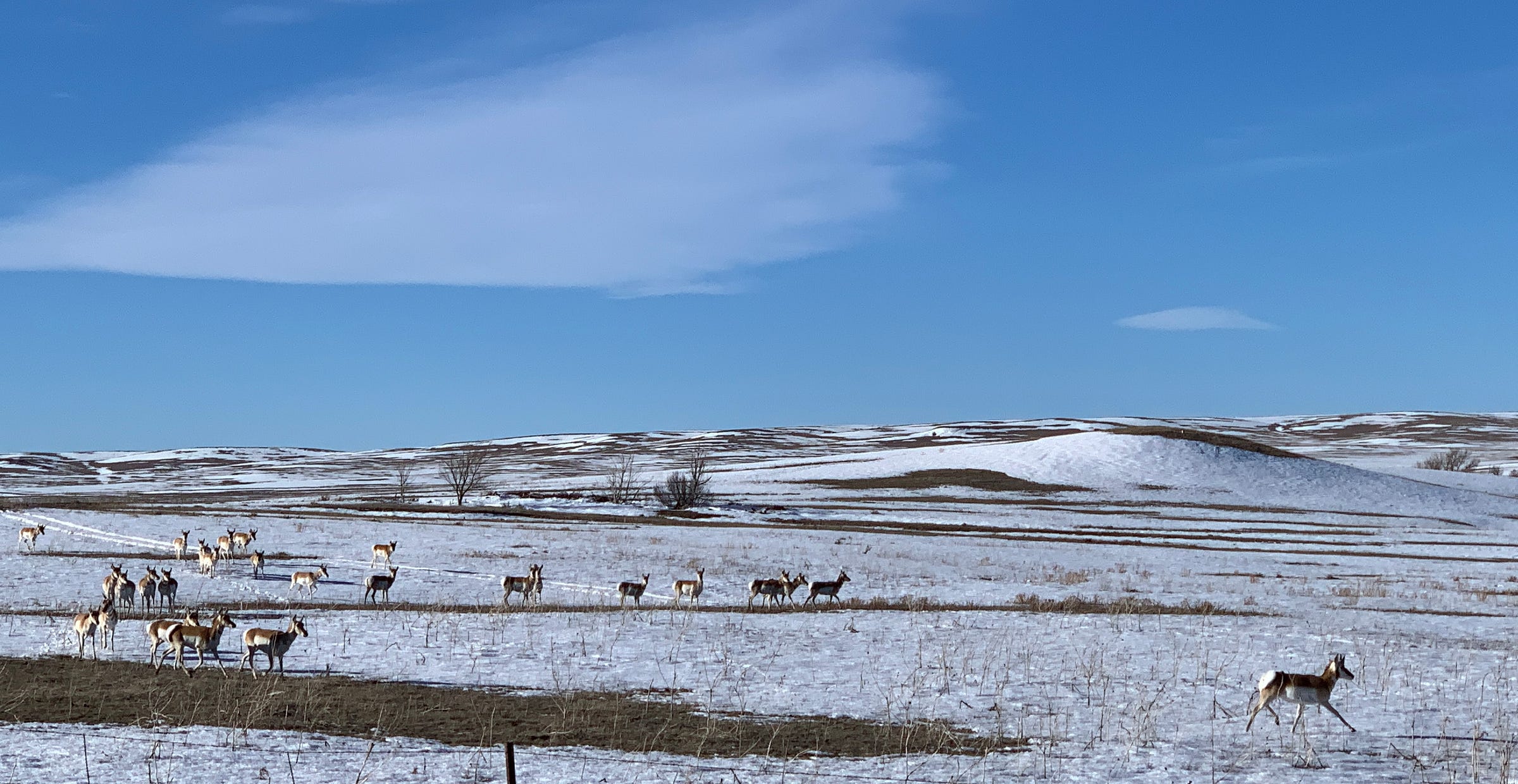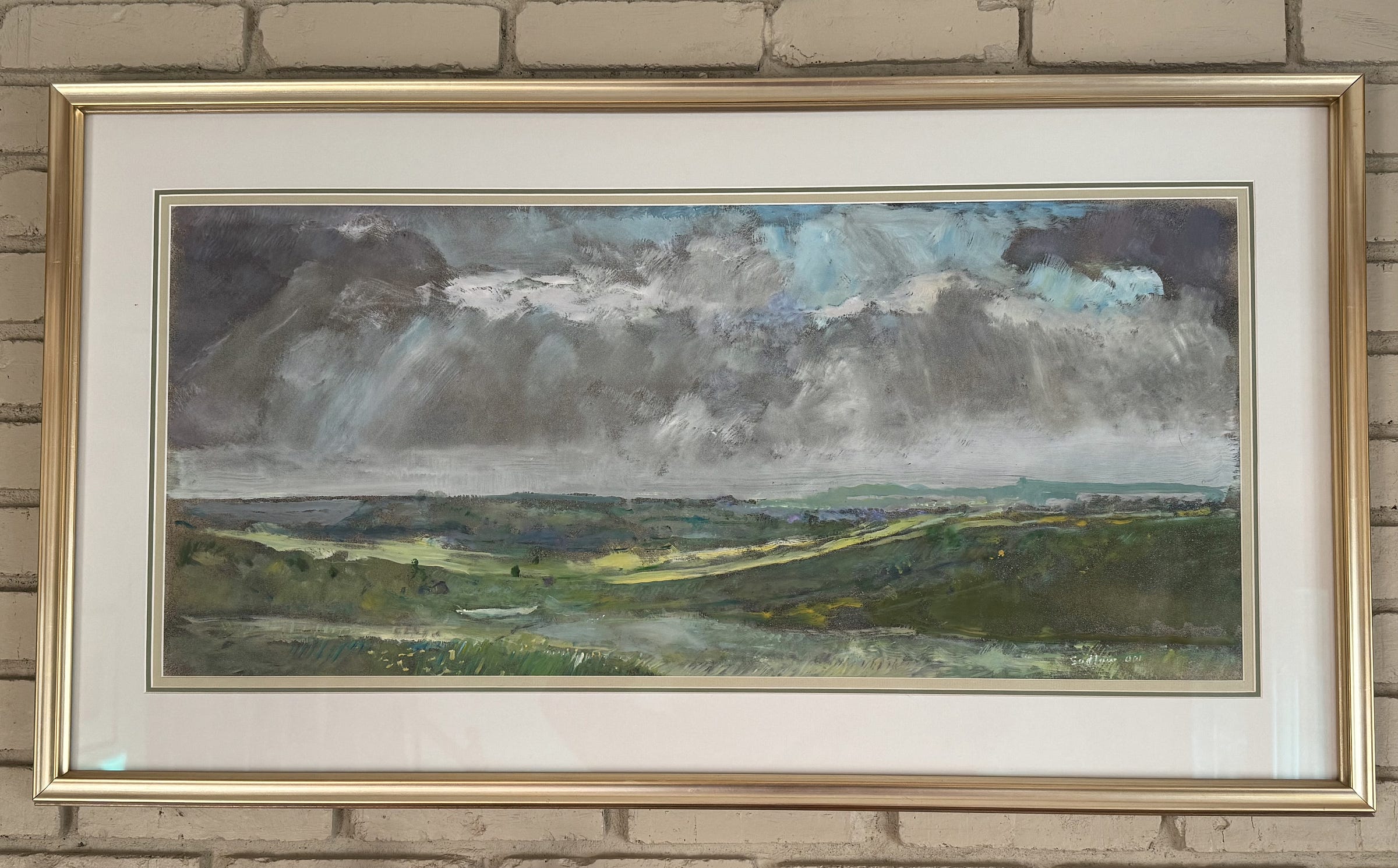Jumbled Plenitude; Grandmother’s House? Old Papers & New Phones; Book Friday
Thanksgiving Dispatch
Greetings, Pilgrims!
Jumbled Plenitude
It’s almost the holiday of Thanksgiving in the United States, held on the fourth Thursday of November. In case some of my readers outside the United States do not know, it’s a holiday when the nation gets together with family (busiest travel days), eats excessive amounts of traditional foods (especially turkey, cranberry sauce, sweet potatoes often weirdly with marshmallows, and pumpkin pie), watches football, drinks and argues, shops excessively (see below) and – one hopes – takes a moment to give thanks for our blessings, as a nation, as communities and families, and as individuals. It is a glorious mess, a jumbled plenitude. I recommend it highly. [Politics, apologies, caveats, etc. omitted by this sinner. Thank me later.]
I am very thankful for my Intermittent Signal readers! One is supposed to find a niche and own it, but I treat Intermittent Signal more like a magazine, a place where things are stored. Like ammunition. Just kidding. It’s hurtful to call this inability to stay in one lane “schizophrenic” – I much prefer “eclectic.” Nonetheless, readership has been growing nicely, for which I thank you. Please tell your friends.
One of the relatively harmless obsessions bred by Substack is my lust for geographic coverage. I am missing three states! (Welcome aboard, Vermont!) Nebraska, West Virginia, and Rhode Island. If you know anyone . . . don’t make me send the flying monkeys. (77 countries, much appreciated, and I hope China on VPN.)
And to my paying subscribers, your support is deeply appreciated. I recently realized Substack tells me who you are – I owe you a note.
Grandmother’s House
A poem, published in 1844, in New England (during the Little Ice Age), was anonymously set to music. The result was a song:
Over the river and through the woods
To Grandmother’s house we go.
The horse knows the way to carry the sleigh
Through the white and drifted snow.
One day you wake up and your wife is the Grandmother in question. The poem was originally written as “To Grandfather’s house,” and along the way some anonymous wit rewrote the lyrics to reflect reality. I don’t need title to the house, but three generations? It’s a comeuppance. And I remember my own childhood Thanksgivings. Next week I’ll see my parents, so spanning almost a century. The strangeness of it all. I’m the first person to notice this.
I don’t write much about family on Intermittent Signal, except indirectly, for reasons obvious and less so. And much to say about what constitutes, or should constitute, “private” in a far flung digital if hardly global village. People vary wildly. More on that, maybe, on another outing. For this holiday, suffice it to say that there has been no end of enthusiastic planning, cleaning, shopping, making. I was brought out of the mountains to lift heavy things, especially our lovely old dog, still doing well. Enthusiasm, en theos, full of God. As I said, blessings. Much more on that too, sometime, maybe.
Old Papers and New Phones
Somewhere in here, under helpful duress, I sorted boxes of papers. Over the years, since college when I began to take myself seriously, so seriously, I’ve kept papers. Things I’ve read, but mostly written, almost none for classes. Correspondence. Harvard’s libraries are full of the papers of notable people, mostly from the 19th century, measured in linear feet. We don’t write like that, don’t mark our places in the world like that, anymore. It’s a strange and I guess archaic aspiration, to want to have future archivists, going through my notes to old climbing buddies, friends of various sorts, family, employers (generally outraged), birthday cards, Christmas cards, condolences — so many gone, or drifted away in one way or another. Decades of teaching and writing and notes from the children. Mostly notes from me to me, trying to make sense of something, lay the groundwork for some masterwork. But there you are.
It felt, frankly, a little like I had died, and my wife and I were going through my own effects, wondering if anybody (even my ghost) would want any of this stuff.
At the same time, I do want some of this stuff. Some I kept for sentimental reasons I will not try to defend. I let go of some things that long mattered, but it seemed inappropriate to keep, in light of many years, declining strength or appetite for adventures, long marriage, life in the old dog yet, but – I should have burned, in dramatic fashion! Some papers, of course, are for my biographer. (?!) (Just one?) And, maybe, hope springs eternal, because some of this thinking is good, at least suggestive, and I may yet have time, energy, and desire to build on some of it. Maybe. Writer as hoarder. Scary. And I’m not quite done. There are more papers, in three states. I’m laughing at you, not with you, snickered the ghost.
Meanwhile, my phone continued its long decline. Getting a new phone was going to be a major hassle, I am overloaded, I watched it happen . . . The port broke. The cloud account became overloaded, and then was taken out of service (?) so I couldn’t upgrade. I was inaudible on received calls. (You call, and I just sit there, silent. Really rude. There were repercussions.) Finally, a pale green shaft of light appeared, slicing the length of the screen like a light saber or maybe a vision of the Grail. The eventual death of the phone with which I have been taking the pictures for Intermittent Signal was a beautiful thing.
The new phone was even more of a hassle than I expected, for reasons too painful for me and too boring for you to relate. Functionality is up, tracking is up, a huge amount of AI I don’t want is foisted on me, the general fussiness of it all is up. Of course, the phone is expensive. But some of it is good, or will be good once I cull the herd of apps, and the camera – the reason I bought the device – is wonderful, if too computerized. Overall, though, the phone reminds me, like a low level hangover, of my difficulties thinking through “progress,” of the sort of modernity we think we want. So much is “irksome” (Auden). Science itself seems to be dissolving into air, digits anyway, much of which is “opaque.” The techno bloom is off the rose, people unhappy, birthrates falling. Serious thinkers are wondering if modernity is ending, and what that might mean. I’ll stop here, and no bibliography this time, but, feeling older in a different way, I’m struck with a sense of it wasn’t supposed to be like this. I’m not sure what it was supposed to be like . . .
But we carry on.
I saw this dog he was chasin' this rabbit It was on Sunday, about noon. I said to the rabbit, "Are ya gonna make it?" I said the rabbit, " Ya gonna make it?" I said to the rabbit, "Are ya gonna make it?" The rabbit said said, "Well, I got to."
—Ray Wiley Hubbard
Indeed.
Book Friday
As all American readers know, the most important part of the Thanksgiving holiday is the Friday after Thanksgiving, popularly known as “Book Friday.” People purchase vast numbers of books to give to friends, family, coworkers, and outright strangers for Christmas.
So, in the spirit of the season, please consider giving away one of my books!
City of Gold: An Apology for Global Capitalism in a Time of Discontent. My first, philosophically biggest, and perhaps best book. Maybe the world is reverting to some sort of 19th century multipolarity, maybe not. Be that as it may, I argue that globalization and European integration provided, for a while at least, a new way to conceive of political life, a new political grammar. To do that, I reconfigure commonplace thinking about money, information, and language (nobody paid attention), and therefore the web of relations we think of as globalization, with its own joys and shortcomings. Still proud of it, a generation on. Kind words:
“City of Gold is an extraordinarily bold effort to understand the economic, cultural, and political implications of globalization. Westbrook draws on his deep understanding of economics, critical theory, and the world of high finance to move beyond traditional academic boundaries and thereby rethink the rise of supranational capitalism. At the same time, he moves easily and gracefully through the realms of history, classical philosophy, psychology, and art criticism. This book will entrance its readers, not just for the sweep of its argument, or the eclectic nature of its insights, but for its sheer intellectual daring and brilliance.”
—Pierre Schlag
“Among the several current ambitious efforts to come to terms with the changing nature of capitalism as a form of life – economic, cultural, and especially, as a system of politics and values – in the present "great transformation in which we are all immersed, Westbrook's is the best that I know, for its passion, its readability, and the unique ways in which it is informed.”
—George Marcus
“David Westbrook brings imagination, realism, and moral seriousness to a set of problems that for better or worse are transforming the way human beings live in every corner of the world.”
—Mary Ann Glendon
Between Citizen and State: An Introduction to the Corporation. This is a book written for law students and sociologists generally. Kind words:
"It is this sort of thinking for which Weber and Durkheim, even Marx, were reaching when they established the modern social sciences on the loose sand of the Between of structures and individuals. The looming power of the structures of modern capitalism was, as Weber put it, an enormous cosmos that clouded the ability of individuals to find their way."
—Charles Lemert
"In this brilliant and original book David Westbrook makes visible the diverse logics that organize actors even in settings such as the corporation where we might assume one single such logic."
— Saskia Sassen
Navigators of the Contemporary: Why Ethnography Matters. This book grew out of years of conversation with anthropologists George Marcus and Douglas Holmes. The book is ultimately about the problem of knowing our present situations, those complexes that travel under the banner of modernity. Levi-Strauss’s list, without footnotes – primary work.
"This book is the most convincing rendering of how to be a good anthropologist that I know of. It links the anthropological clearly to the broader intellectual enterprise. It offers up – after a long drought – a vision of anthropology very much of the sort that, in the heyday of Lévi-Strauss, Edmund Leach, and Mary Douglas, attracted me to it as a student."
—James Faubion
"An ethnographic sensibility allows us to remap, to provide a rather different cartography of modernity, the university, and the intellectual life appropriate to what he calls contemporary conditions."
—Michael Watts
Deploying Ourselves: Islamist Violence and the Responsible Projection of US Force. This book was my effort to argue that, in the Forever War, the U.S. had strayed from its own military traditions, and more deeply, from the central idea that warfare is a kind of politics, and therefore subject to political understanding. Acting on that understanding recommended a substantial reconfiguration of the U.S. security community and its dependence on secrets, and making us unlikely to be trusted when it matters most. Sadly, much of the thinking here has been largely vindicated by events, and we are living with the consequences. In particular, the waste of our political capital has made even more difficult our efforts to construct a security order for the next generations.
"Excellent...Westbrook is refreshingly direct and realistic."
—Andrew Bacevich
" . . .we cannot expect strategies designed for other times and other types of enemy to be optimal for addressing the conflicts that have arisen in our globalized age. Moving well beyond debates over "hard" and "soft" power, and disdaining partisan politics, he offers practical suggestions for a security policy that is smarter about politics in the classical sense of ordering our lives together. "
—Mary Ann Glendon
"His unconventional but persuasive argument, inspired not by sympathy for Islam or the Muslim world but by a realistic rethinking of the arts of both war and statecraft in a global age, should prove a useful counterweight to current tendencies to short-circuit the cultural and diplomatic, not just military, tasks before us."
—Frank Vogel
Out of Crisis: Rethinking Our Financial Markets This is my response to the financial crisis, and more deeply, to the dominance of orthodox microeconomics in political life in advanced economies. Think Reagan/Thatcher. Briefly, I argue that a form of political aesthetics could replace a “scientific” understanding of efficiency as the organizing principle of political economy. You can see how influential this book was by the last few years of widespread happiness with economic policy. J
"Fascinating, original, and illuminating."
—Charles Goodhart
" . . .not just an exegesis of the recent financial crisis – it is a compelling and entertaining diatribe against some of the sacred cows of finance . . ."
—Frank Partnoy
Maguire & Westbrook, Getting Through Security: Counterterrorism, Bureaucracy, and a Sense of the Modern. Written with Irish anthropologist Mark Maguire, this book tells a lot of (morbidly) fascinating stories unearthed through fieldwork in Nairobi bars, airports under threat, and a host of other sites. On that basis, we sketch the outlines of a philosophy of security writ large, not just in the dramatic context of counterterrorism, but as a question of bureaucracy and the modern state that seeks to protect citizens, even when rage of one sort or another erupts.
Getting Through Security Audiobook Part One. The audiobook is coming out gradually on Intermittent Signal and lots of other podcast places. It is free. You can start here. Original music by Vincent Parlato. Kind words:
" . . . about the uncanniness of not knowing, of being out of control, in a state of fear, yet attempting to come to grips with uncertainty and risk. In the end, it is not just about security and the officials who deal with security as a profession, but about modes of navigating with only fragments of maps at hand. A gripping and extraordinary read!"
—Christina Garsten
". . . humanizes the security officials who, through long hours of boredom punctuated by sudden minutes of terror, become practicing ethnographers to keep the skies safe. It's a fascinating read for any air traveler interested in pondering the dilemmas faced by the security bureaucracy."
—Michael Glennon
And, I suppose really for Thanksgiving, a sentimental portrait of these United States: Welcome to New Country: Music for Today's America. This book is about the culture expressed by commercial country music. I discuss music written largely for the middle class, often the middle aged, and in the middle of the country, and ask what it means. Taken collectively, commercial country music expresses, and yes idealizes, a great deal of life in America today. This is a kind of ethnography through the radio, without footnotes, no music appreciation. These are not “songs I like” much less “songs that are important” – I’m not a music critic. But I am a social critic, with more than a little background here. Probably my most popular book.
Welcome to New Country: Music for Today's America Songs Performed. This is a YouTube playlist of the songs discussed in the text.
Welcome to New Country was never published. It did not fit academic lists, musicology and the like, nor trade lists, fandom. I could have converted it into either, but I wanted to write a serious book, about the ideas that make America, but not for academics. This turns out to be surprisingly difficult to do. Surprising because the United States was founded, to a degree quite astonishing for humans, on ideas. Some of the recent political discord not least over the role of higher education is at issue here. At any rate, I just put the text on Amazon. So I don’t really have blurbs from famous intellectuals for this one – but I’m very proud of what people said in the comments. I hope you like it, too.
The cover art for Welcome to New Country is a detail from Storm, by the late great Robert Sudlow. Sudlow carried on the French Impressionist tradition of painting en plein air in, of all places, Kansas. I almost met him before he died. I won’t say singlehandedly, but he taught Kansans (and in due course me) to see their landscape, to see the horizontal, as an earlier generation of painters taught Europeans to see the Alps as more than obstacles. In what I now remember as the last of the easy years, feeling flush, I gave this painting to my wife for our anniversary.
Like I said, a glorious mess, a jumbled plenitude.
Enjoy the holiday, Pilgrims. Count your blessings, whatever they may be.
—David A. Westbrook








Très intéressant vraiment j'adore
Impressive blurbs!
Happy Thanksgiving, sir.